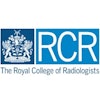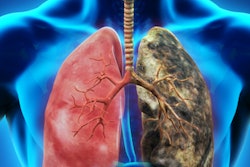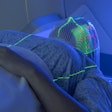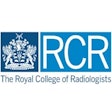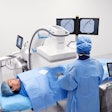
Norwegian researchers have found that an array of factors can influence physicians' behavior when it comes to recommending cancer screening to patients, according to a study published online on 30 August in BMJ Open.
The variation that results may be due to conflicting roles doctors play when it comes to recommending screening for disease in asymptomatic patients, wrote a team led by Berit Bringedal, PhD, of the LEFO-Institute for Studies of the Medical Profession in Oslo.
"The evidence [for cancer screening] is ambiguous and the doctors are faced with potentially inconsistent expectations of their roles," the team noted. "They are obliged to be both the patient's advocate and a steward of societal resources at the same time. Further, as a member of a profession, their duty is to act in accordance with professional norms ... Knowing which role(s) a doctor is loyal to when making a decision can explain variations in practice."
Navigating controversy
Cancer screening guidelines vary across professional organizations due to disagreements about the benefits and harms of screening, the group noted.
"Many cancer screening programs are controversial," the authors wrote. "Disagreements are related to the likely harms and benefits and whether the cost-effect ratio justifies the implementation of such programs ... Norway is no exception: here, as in many other countries, there have been heated disputes, especially concerning programs for breast cancer screening."
Bringedal's team investigated whether and why doctors recommend disease-specific cancer screening to their patients, using a mailed questionnaire to 1,545 Norwegian clinicians across all health services in the year 2014 to 2015. The questionnaire asked respondents to report whether they recommend their patients screen for breast, colorectal, lung, prostate, cervical, and ovarian cancers. The group also tracked physician characteristics such as gender, age, and practice type (specialist or general) as possible predictors of their screening-recommendation behavior, as well as reasons respondents gave for advising or not advising screening for breast and prostate cancer.
The survey response rate was 75%. Bringedal and colleagues found the following:
- 94% of respondents stated they recommended screening for cervical cancer
- 89% advised screening for breast cancer
- 42% suggested screening for colorectal cancer
- 21% stated they recommended screening for ovarian cancer
- 17% advised screening for lung cancer
General practitioners held to screening recommendation guidelines more than specialists. As for the reasons for recommending screening, the most frequently cited was early detection of disease; the most common reasons for not recommending screening was the possibility of false positives and unnecessary further medical interventions.
| Percentage of physicians who recommend screening for different cancers | ||
| Type of cancer | General practitioner | Other physicians |
| Cervical | 98.7% | 91.1% |
| Breast | 93.7% | 87% |
| Prostate | 41.2% | 40.7% |
| Colorectal | 39.3% | 43.5% |
| Ovarian | 15% | 25.8% |
| Lung | 13.2% | 19.3% |
Survey respondents were generally in line with Norwegian screening guidelines and programs, with a large majority recommending screening for breast and cervical cancer, the authors noted.
Recommendations and roles
So what influences physician behavior when it comes to recommending cancer screening to patients? A variety of factors, according to the group.
"Different expectations of doctors' roles could be a possible explanation for the variations in practice and justifications," the researchers wrote. "The effectiveness of governing instruments, such as guidelines, incentives, or reporting measures, can depend on which professional role(s) a doctor is loyal to and policymakers should be aware of these different roles in clinical governance."
More research is needed, Bringedal and colleagues concluded.
"A comparison between actual referrals and the findings in this survey would demonstrate whether the stated and actual practices are similar," the authors wrote. "Further studies of tensions and conflicts in the doctors' roles are required."



